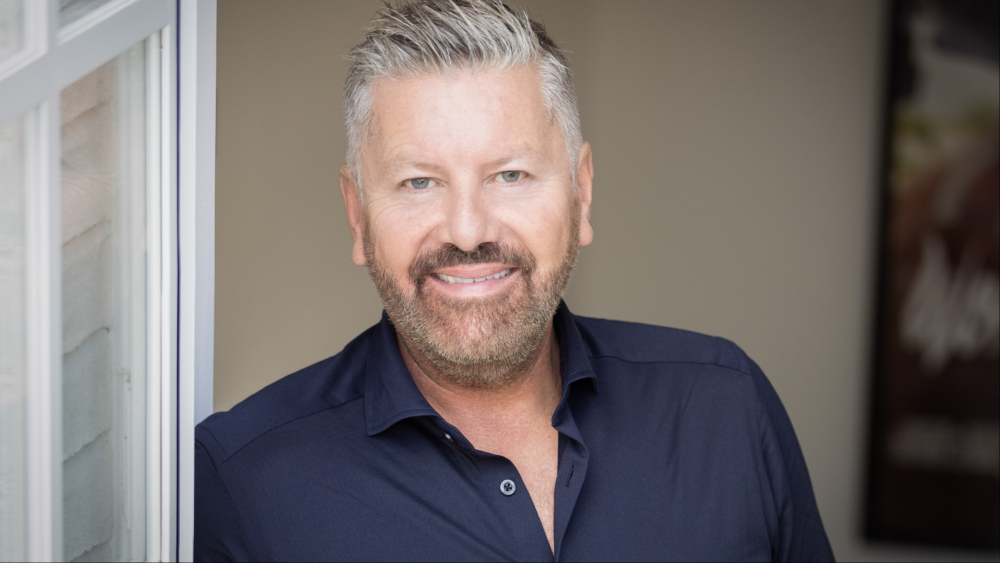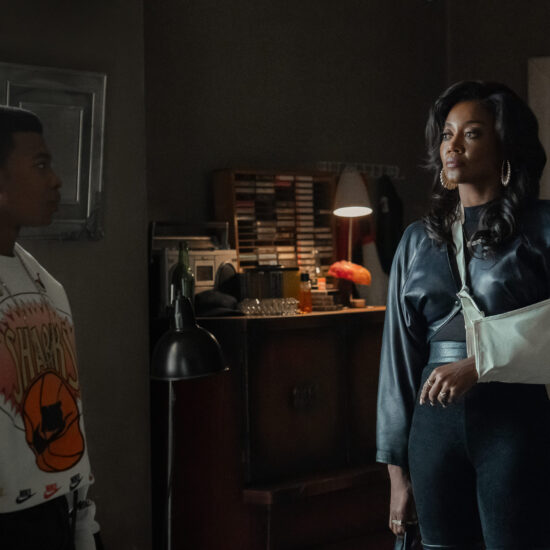
Argonon CEO James Burstall was prompted to write his new crisis management book “The Flexible Method: Prepare to Prosper in the Next Global Crisis” by the COVID-19 pandemic, when the TV industry – like much of the world – came to a grinding halt almost exactly three years ago. Shows including “The Masked Singer U.K.,” which is produced by Argonon subsidiary Bandicoot and usually filmed in front of a live audience, found themselves jeopardy.
But the seeds for the book were sown a decade or so earlier, during the 2008 “credit crunch.” Then, Burstall was the CEO of Leopard Films, which he had founded in 2001 following stints at Oxford University and Stanford and a transitory career in journalism working for Vanity Fair and London’s Evening Standard newspaper. Leopard was chugging along nicely, pumping out hits such as BBC daytime staple “Cash in the Attic,” when disaster struck for the first time. Fuelled by the sub-prime mortgage crisis, the economic downturn saw broadcasters tightening their belts and commissions trickled to a halt.
“I remember walking into the office in the morning of January, in 2009, and talking to my team,” Burstall tells Variety. “And saying, ‘This is a really extremely difficult existential crisis for all of us. But I want you to know, we are not going to lose anybody. Everybody stays. It does mean we’re going to have to do a number of things differently while there is potentially no business coming in for the next one, two, three months or more.”
Some of the changes Burstall instigated during that period included focusing more on ideas, looking for new clients particularly those such as publicly funded broadcasters like the BBC who still had budget to commission (which saw Leopard move into children’s programming for the first time) and asking staff whether they would be willing to take a temporary step down, going from exec producing to editing and line producing. “It was a temporary measure that meant that we could keep all of our people keep working,” Burstall explains.
And it worked. Almost two decades on, Leopard not only survived but thrived. It is now part of the Argonon Group, a television production conglomerate also founded by Burstall, which is comprised of ten companies across the U.K. and the U.S. including Scotland-based Bandicoot and L.A.-based Rose Rock Entertainment.
Courtesy of ITV/Bandicoot
So when the pandemic struck, Burstall was, in some ways, already prepared. “You must heeds the signs, you must listen to things that are coming down the track,” is his one of his key pieces of advice. “We knew in January, February [2020] that COVID was getting really chronic in Italy, that of course it was going to come to the U.K. So you must move early.” Two weeks before the U.K. government implemented the first nationwide lockdown on March 23, Burstall had already sprung into action, moving 1,500 employees onto remote working within 48 hours.
After ensuring not just his employees’ wellbeing but also their families’ – “you needed to make sure that the children were safe, that elderly parents were in a safe place, and that they were getting food,” he says – the next step was to look at how to get key shows, such as the second season of “Masked Singer” and drama series “Worzel Gummidge,” which stars Mackenzie Crook, back into production. “Because all of us, both full time and freelancers, we all need to produce, not least, of course, because if we don’t produce we’re not earning any money and the business can’t survive,” says Burstall.
After implementing a “gold standard” set of COVID protocols that stretched to 1,000 items (including no handles on toilet doors), “Masked Singer” went into production, albeit without a studio audience and with the judges separated by Perspex panels. In Burstall’s book, “Masked Singer” judge Davina McCall recalls coming back on set with those protocols in place. “It was jarring,” she says. “At first, we couldn’t hear each other and it was a bit odd. And then we worked with it.”
“A lot of the show is dependent upon really vibrant, dynamic banter,” Burstall explains. “And [the judges, which also included Rita Ora, presenter Jonathan Ross and comedian Mo Gilligan, who replaced Season 1’s Ken Jeong due to COVID travel restrictions] completely stepped up and indeed, the show that we shot in the middle of COVID was probably one of the funniest and sharpest that we did, because there was a sense that ‘there’s just no way that we can do this’ and yet we have to. We have no choice.”
As well as COVID-19 and the credit crunch, “The Flexible Method,” which comes out in the U.K. on March 30 and in the U.S. on July 18, also looks at how individuals and businesses have responded to disasters ranging from the California wildfires to Hurricane Katrina to the war in Ukraine. The book includes guidance such as what to do when disaster first strikes, how to steer a company through a crisis and how to set course for the future. Burstall says he has most recently been applying the method to the current economic downturn and post-pandemic recovery.
While “The Flexible Method” is rooted in Burstall and Argonon’s own experiences of those disasters, the TV boss says he hopes the lessons in it can be applied by anyone in any industry who runs a business or manages a team. “Crises are not only an intrinsic part of our past, but they are absolutely going to be an intrinsic part of our future, there is no escape,” Burstall says. “So what are we going to do? Well, we have choices. We can either cower and bow down and feel terror, all of which is completely natural human instinct, or we can think, ‘We’re gonna have to turn this around and make it work in our favour. So what can we do in order to basically not only survive, but also come out on top?’”














